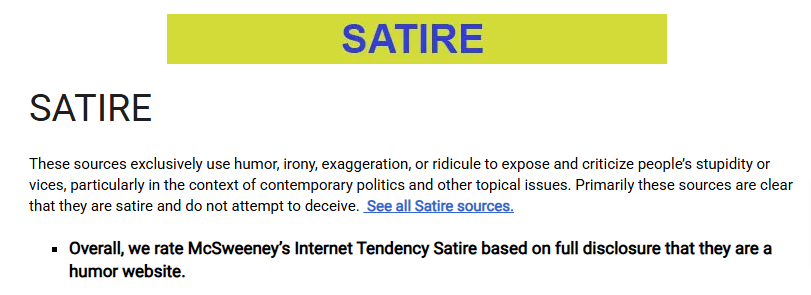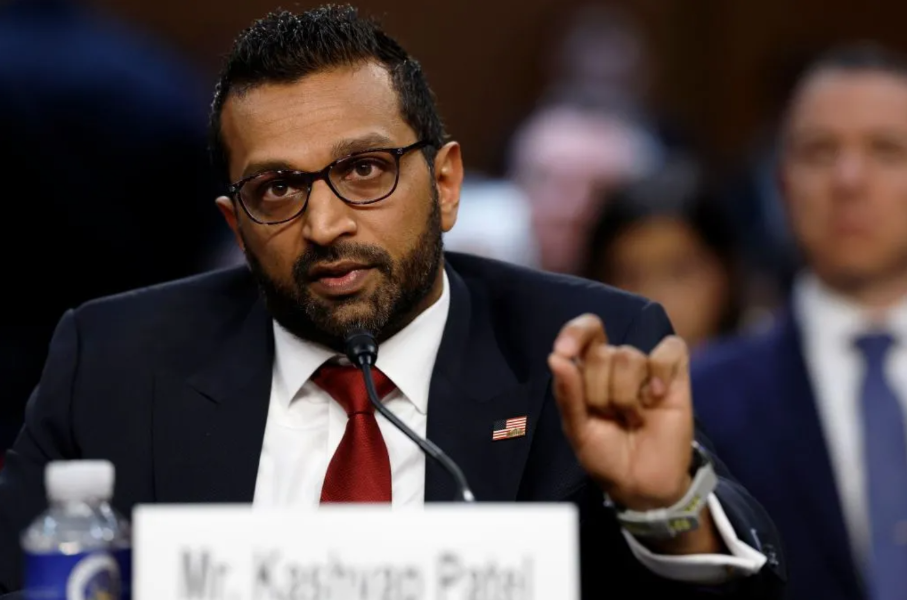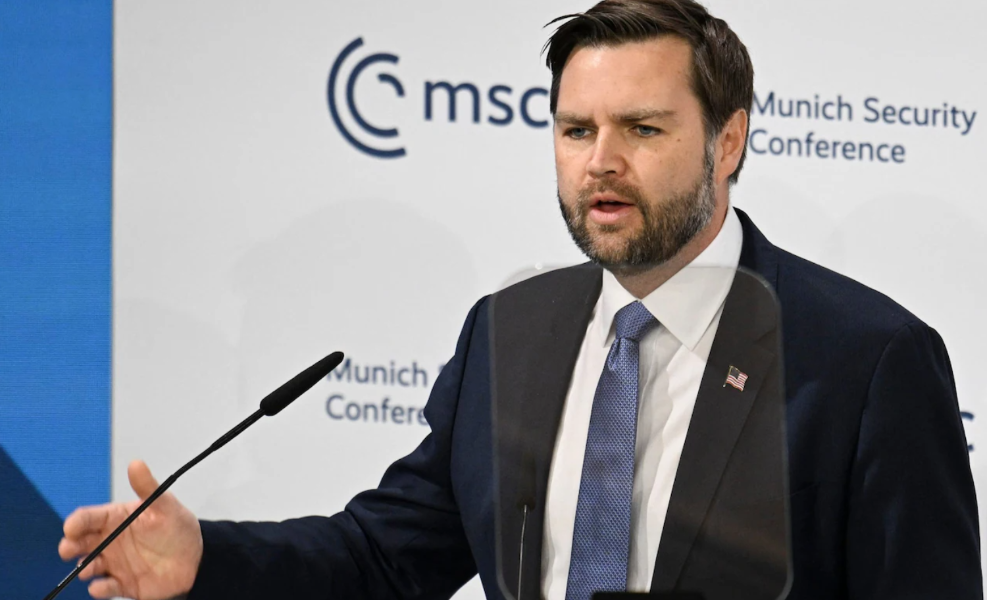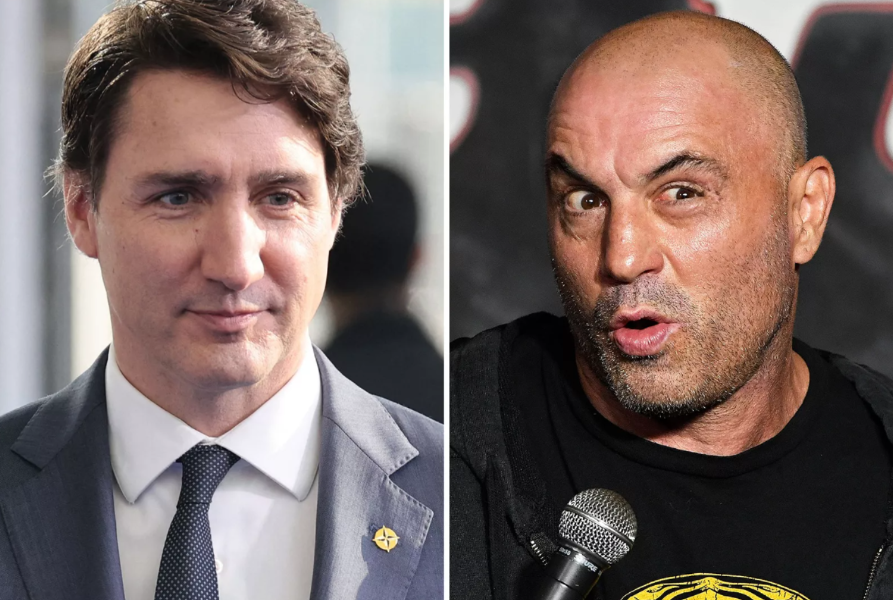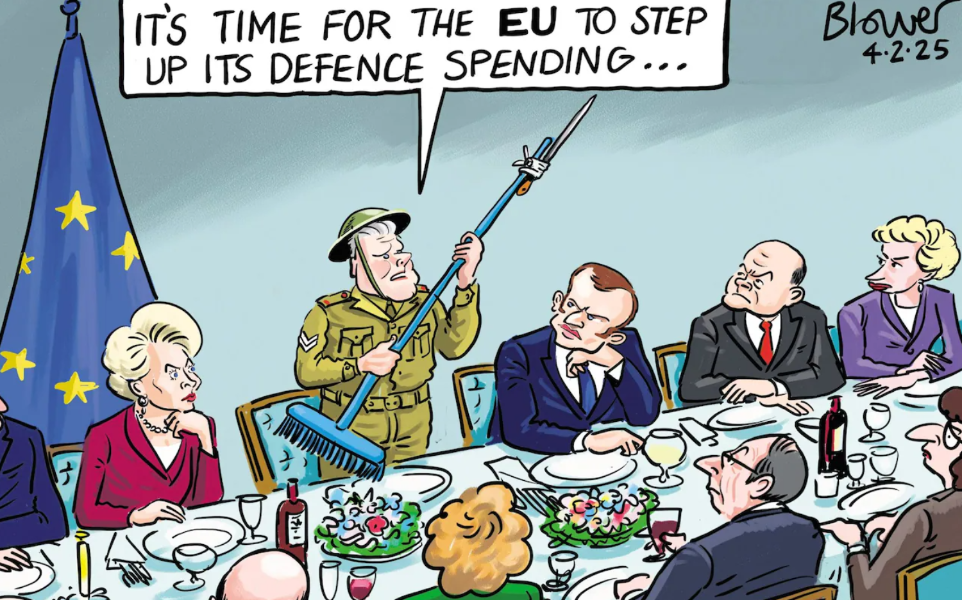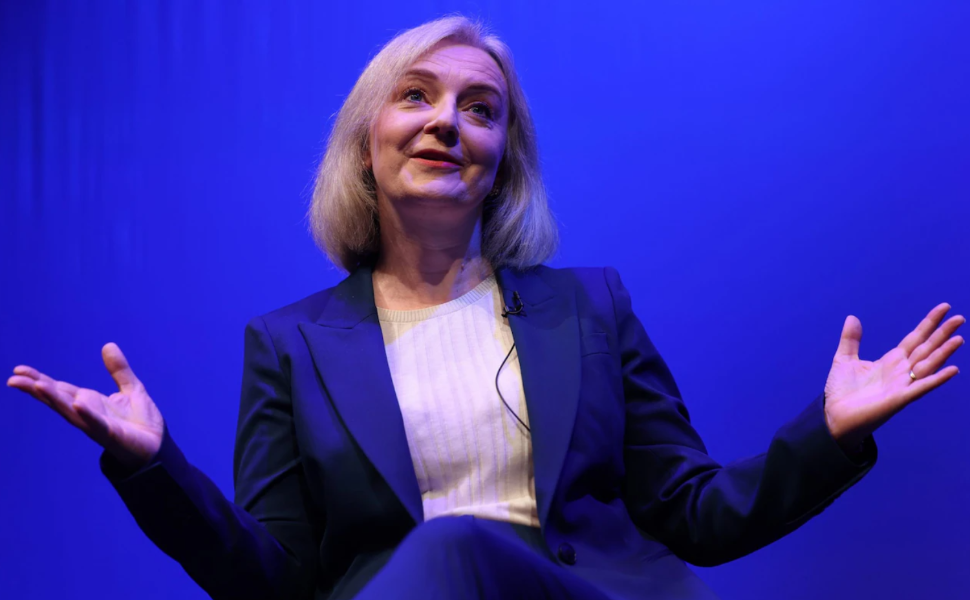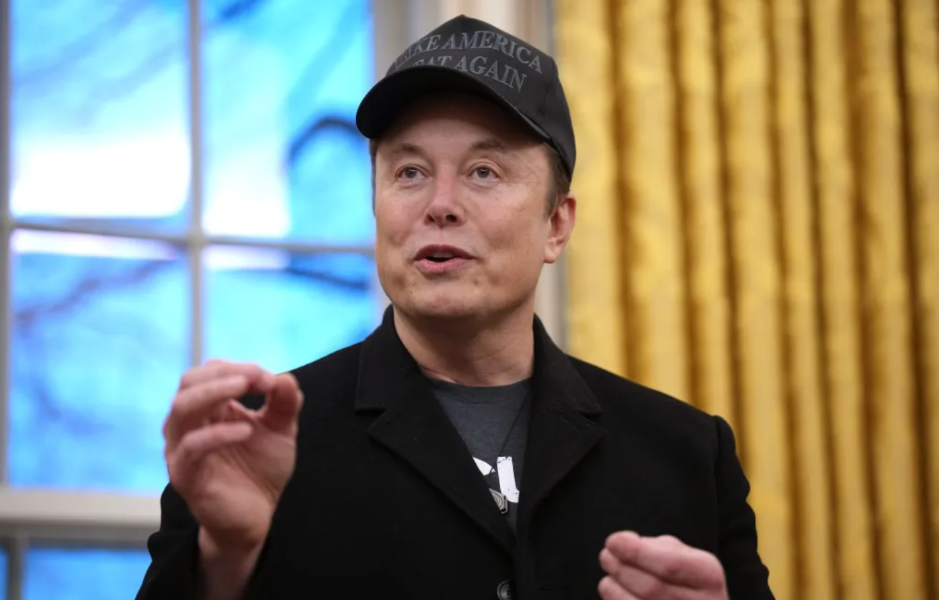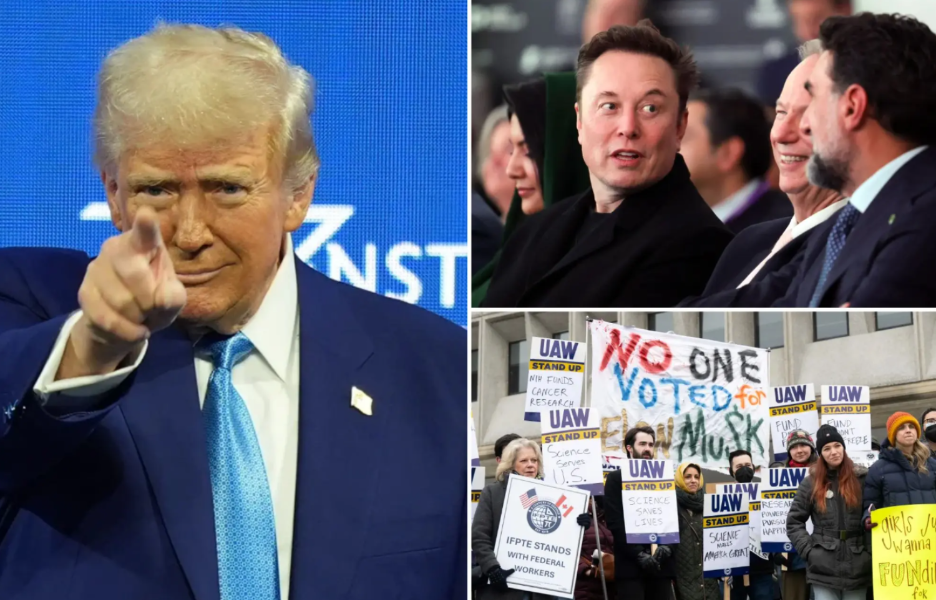-
Posts
10,702 -
Joined
-
Last visited
Content Type
Events
Forums
Downloads
Quizzes
Gallery
Blogs
Everything posted by Social Media
-
Link not provided for the OP @bannork In factual areas such as news forums and current affairs topics member content that is claimed or portrayed as a fact should be supported by a link to a relevant reputable source. //closed//
-

Trump’s Bold Proposal to End Gaza’s Cycle of Suffering
Social Media replied to Social Media's topic in World News
Bickering and baiting troll posts contravening community standards have been removed -
When Yale University released a groundbreaking study linking Covid vaccines to severe physical changes, Lindy Ayers felt a mix of validation and relief. The 31-year-old Army veteran from Arkansas has been confined to a wheelchair since receiving her second Pfizer shot in 2021, part of the military’s vaccination mandate. For years, Ayers was told that her symptoms—extreme fatigue, sickness, and heart palpitations—were merely anxiety. Later, doctors suggested long Covid as the culprit. When she raised concerns that the vaccine might have caused her condition, she was dismissed and even labeled an antivaxxer. She is not alone. Thousands of Americans have shared similar experiences, and following the study’s release, many in the fields of healthcare, law, and the military have spoken up, saying they finally feel heard after years of being dismissed. Dr. Trevor Keyler, a 39-year-old biology professor from Minnesota who describes himself as "pro-vaccine" and "pro-science," has endured extreme tremors, fatigue, and partial blindness since receiving his Moderna vaccine. Previously active and outdoorsy, Dr. Keyler has been forced to cut his work hours and can no longer enjoy hikes with his wife and two children. For years, doctors attributed his condition to Covid itself or long Covid, denying any connection to the vaccine. The mRNA vaccines produced by Moderna and Pfizer have been credited with saving millions of lives worldwide, including an estimated three million in the U.S. However, experts suggest that the push to combat vaccine misinformation has inadvertently led to individuals with legitimate vaccine-related injuries being ignored and ostracized. Yale’s research identified a condition called "post-vaccination syndrome," in which patients exhibit unique biological changes. Common symptoms include brain fog, dizziness, tinnitus, and an inability to exercise without exhaustion. The study also found that, in some cases, the vaccine appears to reactivate the Epstein-Barr virus and disrupt immune systems in ways still being investigated. Some affected individuals have been found to carry high levels of coronavirus proteins in their blood long after receiving the vaccine, potentially keeping their bodies in a prolonged state of inflammation. Ayers believes she suffers from this syndrome. Before her vaccination in September 2021, she was in peak physical condition. Two months later, she required a wheelchair. Doctors dismissed her symptoms as anxiety and prescribed antidepressants, but her condition continued to deteriorate. Once able to run 10 miles and bike 20, she soon struggled with severe muscle tears, including a torn anterior cruciate ligament (ACL). One day during an art class, she passed out. "I couldn't see. I couldn't hear. I've been in a wheelchair ever since," she recalled. For over a year, doctors assumed Ayers had long Covid due to persistently high spike protein levels. It wasn’t until 2023—two years after her vaccination—that doctors at the Veterans Affairs and Stanford University diagnosed her with chronic fatigue stemming from vaccine residuals. She also tested positive for reactivated Epstein-Barr, similar to findings in the Yale study. "Doctors told me there’s nothing else they can do for me and to just rest. They would say stuff like, ‘You could die in seven months, or you could live the rest of your life like this. We don’t know what’s going to happen to you. We don’t know what’s wrong with you.’” For eight months, Ayers was bedridden and unable to speak. Her husband, a Coast Guard veteran, had to take leave to care for her. "I get these crashes where if I try to take care of myself, my body shuts down and I'm in so much pain. I can't even lift my arms," she said. While she has seen slight improvements, she worries about being dismissed. "I'm not an anti-vaccine person. I think vaccines help people, but I think this specific vaccine hurt a lot of people. It'd be cool if more people understood that it can hurt people so that more doctors will research and they'll have a cure for what I'm going through." Erica Evers, a 42-year-old former legal compliance worker from Iowa, was hesitant to receive the Moderna vaccine but complied to keep her job and health insurance, which she relied on to treat her son’s chronic illness. "I had to choose between his life and my own. It’s not a choice when you’re a mother," she said. The day after her first dose, her right eye became blurry, leaving her unable to see directly in front of her. After her second dose, the condition worsened. A retinal specialist diagnosed her with a hemorrhage at the back of her eye, requiring monthly injections costing over $2,000 per dose. Around the same time, she developed tinnitus and hearing loss. MRI scans revealed brain swelling, but doctors dismissed any link to the vaccine. "I kept asking them if it was the vaccine, and the big hospitals kept saying, ‘No, absolutely not. The shots are safe and effective.’ They couldn’t diagnose what was happening to me," she said. Evers fears waking up one day unable to see her three sons. Though her condition has never been officially tied to the vaccine, she hopes the Yale study will help provide answers. Kameron Snowden, a 57-year-old service technician from Indiana, took the Covid vaccine in support of his wife, a healthcare worker. "I was never a skeptic. For the sake of my wife’s career, it was something I was willing to do," he explained. After his second dose, he noticed heightened senses. "Lights were brighter. I could hear things across the room that I normally couldn't hear. Everything was more vivid." Then came the "frequencies" in his ears, akin to fax machine noises. Doctors initially dismissed his concerns, but by 2023, he developed an irregular heartbeat, feeling as though he was having heart attacks. "I can't bend down and stand up without feeling like I'm losing a grip on consciousness. It literally feels like sometimes my brain is being starved of oxygen," he said. Snowden now avoids being home alone, fearful of a sudden medical crisis. "I just never know what’s going to happen. I’m scared to be left home alone. You just resign yourself to the fact that your days are numbered." Dr. Keyler faced a similar trajectory. A year after his Moderna shot, he was diagnosed with blood clots in his right kidney, followed by rhabdomyolysis, a condition where muscle breakdown releases proteins that can damage the kidneys. He also developed cataracts, a condition usually linked to aging but sometimes associated with kidney damage. "I couldn't stand for more than 20 minutes at a time without being completely exhausted," he said. Eventually, he had to take partial leave from work. In his search for answers, he consulted Mayo Clinic specialists, who could not determine the root cause of his health issues, attributing them instead to post-Covid syndrome. However, Dr. Keyler is convinced his vaccine triggered his ailments. "In general, doctors need to believe what their patients are saying and when they don’t know, not come up with something completely wild out in left field. I was misdiagnosed with so many things along the way and some of them were pretty serious. I think they realize it now, but just how debilitating [the experience] can be… It was very difficult." Based on a report by Daily Mail 2025-02-21 Separate report also in NYT
-

Updates and events in the War in Ukraine 2025
Social Media replied to cdnvic's topic in The War in Ukraine
Another of your trolling posts removed @thaibeachlovers about time to add something to the topic other than flaming others posts. -

Global Outrage as Hamas Parades Coffins of Child Hostages in Gaza
Social Media replied to Social Media's topic in World News
UPDATE: Two bodies returned by Hamas identified as Bibas children, mother Shiri not among them The Israel Defense Forces said it had forensically identified the bodies of two Israeli hostage children returned by Hamas on Thursday – Kfir Bibas and his older brother, Ariel – but that the additional body they received is not that of their mother, Shiri Bibas. “No match was found for any other hostage. This is an anonymous, unidentified body,” the IDF said in a statement on social media. “This is a violation of utmost severity by the Hamas terrorist organization, which is obligated under the agreement to return four deceased hostages,” the IDF said. “We demand that Hamas return Shiri home along with all our hostages.” The identification of deceased hostages was conducted by Israel's National Institute of Forensic Medicine in collaboration with the Israel Police, the military said. The IDF said that “professional officials, based on the intelligence available to us and forensic findings from the identification process, Ariel and Kfir Bibas were brutally murdered by terrorists in captivity in November 2023.” https://www.usatoday.com/story/news/world/2025/02/20/shiri-bibas-body-not-returned-israel/79352222007/ -

Hamas filth celebrating babies coffins....
Social Media replied to theblether's topic in Political Soapbox
//Closed// There is a topic on this already running here. -

Britain’s Leadership Crisis at a Time of Global Peril
Social Media replied to Social Media's topic in World News
@Chomper Higgot your repetitive snarky remarks about the Telegraph are getting tedious. It stops now or I will stop it for you. 17. ASEAN NOW news team collects news articles from various recognised and reputable news sources. The articles may be consolidated from different sources and rewritten with AI assistance These news items are shared in our forums for members to stay informed and engaged. Our dedicated news team puts in the effort to deliver quality content, and we ask for your respect in return. Any disrespectful comments about our news articles or the content itself, such as calling it "clickbait" or “slow news day”, and criticising grammatical errors, will not be tolerated and appropriate action will be taken. Please note that republished articles may contain errors or opinions that do not reflect the views of ASEAN NOW. If you'd like to help us, and you see an error with an article, then please use the report function so that we can attend to it promptly. -
Hamas has drawn widespread condemnation after parading the coffins of Israeli hostages through the streets of Gaza in what has been described as a vile and cruel act. The United Nations’ human rights chief denounced the spectacle as “abhorrent” and a violation of international law, while grief-stricken Israelis mourned the victims, including baby Kfir Bibas, his four-year-old brother Ariel, their mother Shiri, and elderly hostage Oded Lifshitz. Their bodies were believed to be inside the caskets displayed by Hamas before being handed over to the International Committee of the Red Cross (ICRC). Children in Gaza celebrate on the stage where Hamas parade the coffins of a 1 year old and a 5 year old whom they kidnapped and murdered. International leaders expressed horror at the treatment of the victims. German Foreign Minister Annalena Baerbock described the images as “almost unbearable,” condemning the prolonged suffering inflicted upon the victims’ families. The tragedy of baby Kfir, who was only nine months old when Hamas terrorists abducted him on October 7 alongside his mother and brother, struck a deep chord. Shiri’s husband, Yarden Bibas, was taken separately and released this month after 16 months in captivity—only to learn that his wife and children had been murdered. Israeli Prime Minister Benjamin Netanyahu vowed retribution, calling Hamas "monsters" and declaring that justice would be served. “The voice of our dear ones’ blood cries out to us from the ground,” Netanyahu said on X. “It requires us to settle accounts with the depraved murderers – and we will settle the score with them.” Condemnation came from around the world, including from Saudi Arabia’s grand mufti, who called the parade of coffins “a disgrace to Islam.” Many Israelis, including those who have suffered personal loss at the hands of terrorists, echoed these sentiments. Hillel Fuld, whose journalist brother was murdered in a terrorist attack in the West Bank in 2018, said he was unsurprised by the shocking display. “It’s shocking to me that anyone was shocked by the satanic parade that we saw today in Gaza. This is Hamas,” said Fuld, a 45-year-old Queens native now living in Israel. “After today, mothers will stop telling their children that there is no such thing as monsters.” Michael Levy, the brother of recently freed hostage Or Levy, described the event as "just more proof of how evil this terror organization is." He added, “What kind of human being celebrates the murder of a baby – and a kid?” Struggling to comprehend the inhumanity, Levy questioned, “Knowing you have babies and an old man, an innocent woman who was murdered… And you see people happy and celebrate… What exactly are you celebrating? What’s wrong with you?” The horrifying spectacle has only deepened global outrage against Hamas, with calls for accountability growing louder. While the grieving families of the murdered hostages mourn their loss, the world watches in shock at the depths of brutality on display. Based on a report by Daily Mail 2025-02-21
-
Kash Patel has officially been confirmed as the new director of the FBI, following a closely contested vote in the US Senate. Patel, a former prosecutor and vocal critic of the agency he now leads, was approved by a 51-49 margin. His nomination by President Donald Trump sparked fierce debate, with two Republican senators, Susan Collins of Maine and Lisa Murkowski of Alaska, joining all Democrats in opposition. Throughout the confirmation process, Patel sought to dispel concerns that he would use the FBI to settle political scores. Democrats had expressed fears that he would pursue retribution against Trump’s opponents, but Patel denied any such intentions. He also refuted allegations of keeping a list of "deep state" enemies and attempted to downplay past remarks in which he had referred to officials who investigated Trump as "criminal gangsters." Following his confirmation, Patel acknowledged his new role in a statement on X, writing, "I am honored to be confirmed as the ninth Director of the Federal Bureau of Investigation. My mission as Director is clear: let good cops be cops - and rebuild trust in the FBI." His appointment comes at a time of significant upheaval within the agency. The Justice Department recently removed some top officials and demanded the names of agents involved in the investigation of the 2021 Capitol riot, an event that remains a point of contention in US politics. News of Patel's confirmation was met with enthusiasm at the annual Conservative Political Action Conference (CPAC), where Republicans gathered in Washington, DC. Florida Senator Rick Scott addressed the crowd from the CPAC stage, asking, "What do you think about Kash Patel?" The audience responded with loud applause, underscoring the widespread support for Patel among conservatives. To many Republicans, Patel represents a much-needed force for change within the FBI, an agency they believe has been weaponized against them. Trump and his allies have long accused the bureau of political bias, and Patel's appointment is seen as an opportunity to overhaul its leadership and direction. However, Democrats have painted Patel as an unqualified extremist who lacks the necessary experience for the role. His critics argue that he prioritizes loyalty to Trump over the independence required of an FBI director. Senator Martin Heinrich voiced his concerns on X, stating, "[Patel's] poor judgment and lack of experience make him wholly unqualified to keep Americans safe as our FBI Director. I voted no." Patel replaces Christopher Wray, who had been appointed by Trump in 2017. Wray resigned last month, just before Trump’s inauguration for his second term, following signals from the new administration that he would be removed from his position. As Patel assumes control of the FBI, his leadership is expected to bring significant changes to the agency. Whether his tenure will rebuild trust or deepen divisions remains to be seen. Based on a report by BBC 2025-02-21
-
NATO is undergoing a profound shift as European nations face increasing pressure to bolster their defense capabilities. This follows a stark warning from U.S. Vice President JD Vance, who emphasized that Europe must take greater responsibility for its own security. Charles Woodburn, CEO of BAE Systems, has stressed that while the defense industry is ready to meet rising demands, many governments have yet to translate their commitments into actionable budgets. "There’s no question, it feels like quite a profound change and a paradigm shift," Woodburn stated. "In terms of how that evolves – in terms of Europe’s thinking, NATO’s response and what the sense is of the new number to be aiming for – I think we’ll learn more in the coming couple of months. There’s lots of rhetoric but that has not, as yet, translated into a clear set of budgets that we will be looking for in order to make those plans that we need." BAE Systems recently reported a surge in sales, reaching £34 billion last year, pushing its order backlog to a record £77.8 billion. The company, Europe’s largest defense contractor, manufactures a range of military equipment, including nuclear-powered submarines, Typhoon fighter jets, and artillery shells. With tensions persisting in Europe as the U.S. seeks to mediate between Russia and Ukraine, BAE expects at least another £30 billion in sales in 2025. This projection hinges on the outcome of an ongoing UK defense review, which will determine how and when the government meets its commitment to spending at least 2.5% of GDP on defense. As speculation grows over increased defense budgets, Woodburn emphasized that BAE is prepared to ramp up production accordingly. "Well, [the spending target] makes a big difference to us and the UK. But we can handle it. And frankly, unless we end up in a hot conflict, the best thing to have is a strong deterrent," he said. "The growth to whatever the number ends up happening over several years and, on the kind of numbers that have been talked about, I’m confident we can meet that challenge. If we know what the ultimate goal is, I’m confident that we can deliver the capability." Certain areas of production, such as ammunition and drones, could be accelerated relatively quickly. However, Woodburn cautioned that larger, more complex equipment would require more time. Concerns persist within Western defense circles regarding the prolonged construction timelines for ships, submarines, and aircraft. A recent U.S. Navy report highlighted that China’s shipbuilding capacity has surpassed that of the United States by a staggering factor of 600. BAE has also faced its own production delays, notably with the UK’s Type 26 frigates in Glasgow, which are now running a year behind schedule and are expected to exceed initial cost estimates by more than £200 million. To enhance NATO’s preparedness against potential threats from Russia or China, Woodburn suggested a greater emphasis on unmanned platforms such as drones, which are cheaper and faster to build. BAE has significantly expanded its drone production capabilities, becoming Europe’s leading producer outside of Ukraine through acquisitions of British firms Malloy Aeronautics and Callen-Lenz. "We are producing a lot of drones now and the ability to scale those up – we have real capability there," Woodburn noted. "That’s very different to scaling up some of the big platform parts of our business, which, if we ended up in a full-blown conflict – and heaven help, none of us want to be in that position, but if we did – that is a different thing to scale up for." He stressed that while smaller systems like drones and missiles can be produced rapidly, they must be integrated with larger defense platforms for effective military capability. "The truth is, all the war gaming that we have done shows that you need a combination [of big platforms and drones]. You can’t do it with just cheap, off-the-shelf capabilities. It’s the combination." As NATO grapples with these challenges, European nations must determine how quickly they can convert their commitments into tangible defense investments. The coming months will be critical in shaping the alliance’s future approach to security and deterrence. Based on a report by Daily Telegraph 2025-02-21
-
Joe Rogan did not hold back in his criticism of Canadian Prime Minister Justin Trudeau during a recent podcast conversation with former CIA operative Mike Baker. The outspoken podcaster accused Trudeau of pushing Canada toward a totalitarian form of communism and expressed his deep disdain for the Prime Minister’s leadership. “It’s fu**ed. It’s on the same patch of land as us and it’s fu**ed,” Rogan said, emphasizing what he saw as the dangers of left-leaning governments seeking total control. “It just shows you what could happen here if you have the right laws because people like that fu**khead Justin.” He further insulted Trudeau, calling him a “co**sucker.” Rogan admitted that he rarely speaks about individuals with such anger but said he “genuinely despised” what Trudeau represented. He expressed concern over what he described as severe restrictions on free speech in Canada, particularly on the internet. “If you can’t express yourself and say, ‘Hey, this is fu**ed up, this is crazy, why am I doing this, these studies show that you’re not correct.’ If you can’t say all those things, which right now you cannot do in Canada, it’s not the same,” he said. He warned that leaders like Trudeau were working alongside lobbyists, pharmaceutical companies, and military-industrial interests to consolidate power. According to Rogan, this was a dangerous path that could eventually threaten the United States. “These people are leading you on the road to legitimate communism. He’s leading that country on a road to legitimate communism. It’s very dangerous, and I think most Canadians are fed up with it at this point,” he stated. Despite his criticism, Rogan remained hopeful that Canada would soon elect a leader who was radically different from Trudeau. He cautioned Canadians against being fooled by another politician who could use charisma to push the same agenda. “Hopefully they don’t get some new slick talker to con them into the same old bull**it,” he concluded. Meanwhile, U.S. President Donald Trump has reignited controversy by joking about Canada becoming the 51st state. As he began his second term, Trump took a tough stance on trade with Canada, threatening additional tariffs on Canadian exports. He also teased Trudeau, suggesting that he could become the governor of “the great state of Canada” if the country were to be absorbed by the United States. “I look forward to seeing the Governor again soon so that we may continue our in-depth talks on Tariffs and Trade, the results of which will be truly spectacular for all!” Trump wrote on Truth Social. In a moment caught on a hot mic, Trudeau was overheard telling Canadian business leaders that he believed Trump was serious about the idea. “Mr. Trump has it in mind that the easiest way to do it is absorbing our country and it is a real thing,” Trudeau reportedly said before the microphone cut out. As tensions between the two nations persist, the debate over Canada’s political future and its relationship with the United States continues to intensify. Based on a report by Daily Mail 2025-02-21
-
The United States government has officially classified eight Latin American criminal organizations that operate both abroad and within U.S. borders as "foreign terrorist organizations." These groups, involved in drug trafficking, human smuggling, and violent territorial expansion, are now receiving the same designation as entities like al-Qaida and the Islamic State. The move, set to be published in the Federal Register, is meant to apply further pressure on these groups and those who support them. Among the designated organizations is the **Sinaloa Cartel**, one of Mexico’s most powerful and enduring criminal groups. Established in the 1970s, this cartel operates as a sprawling syndicate controlling large portions of the U.S.-Mexico border. It utilizes boats, aircraft, tunnels, and human couriers to transport narcotics across continents. The cartel has been deeply involved in fentanyl production, importing precursor chemicals from China and smuggling the finished drug into the U.S., where fentanyl overdoses have claimed tens of thousands of lives annually. The arrest of its long-standing leader, Ismael "El Mayo" Zambada, has led to internal power struggles between his loyalists and the sons of Joaquín "El Chapo" Guzmán, the cartel’s former head now serving a life sentence in the U.S. Another designated group, the **Jalisco New Generation Cartel (CJNG)**, rose to prominence in 2011 when it violently introduced itself to Mexico with the mass murder of over 30 people in Veracruz. Known for its rapid expansion and extreme brutality, CJNG has deployed drones carrying explosives, improvised explosive devices, and even attempted an assassination on a top Mexican security official. Led by Nemesio "El Mencho" Oseguera, the cartel supplies vast quantities of cocaine, methamphetamine, and fentanyl across the U.S. The **Gulf Cartel and Northeast Cartel**, both operating along Mexico’s eastern border with the U.S., are also on the list. The Gulf Cartel, once a dominant force, has fractured into violent factions. It previously created the Zetas, an elite group of ex-military enforcers who later became an independent cartel. The Northeast Cartel, a remnant of the once-powerful Zetas, maintains control over parts of Nuevo Laredo, a major commercial hub at the U.S.-Mexico border. Two smaller Mexican crime groups, **La Nueva Familia Michoacana and United Cartels**, have also been designated as terrorist organizations. While they are involved in drug trafficking, their control extends beyond narcotics. They have leveraged extortion and violence to control a significant portion of Mexico’s $2.8 billion avocado industry. Their threats against U.S. inspectors monitoring avocado production for pests have raised alarms in Washington. Outside of Mexico, the Venezuelan group **Tren de Aragua** has also earned the terrorist label. Originally formed inside a prison, this group has expanded across South America and into the U.S. Its operations now revolve around migrant smuggling, human trafficking, forced labor, and sexual exploitation. Tren de Aragua is infamous for its extreme brutality, using decapitations and live burials to instill fear. It has embedded itself into criminal networks throughout the continent, using cryptocurrency for money laundering. The gang has also become a central talking point in the U.S. political debate on illegal immigration. Another designated group, **Mara Salvatrucha**, more commonly known as **MS-13**, was previously a focal point of the Trump administration’s immigration policies. Originally formed in Los Angeles in the 1980s by Salvadoran refugees, the gang spread back to El Salvador after deportations and quickly became one of the most violent criminal organizations in the region. MS-13 has engaged in widespread extortion, drug trafficking, and ruthless violence. While it has been significantly weakened by Salvadoran President Nayib Bukele’s sweeping crackdown, in which over 80,000 suspected gang members have been arrested, human rights groups have raised concerns over due process violations. The decision to classify these groups as foreign terrorist organizations marks an escalation in the U.S. approach to combating organized crime in Latin America. By labeling them as terrorist entities, the U.S. government gains broader legal authority to target not only the groups themselves but also their financiers and collaborators. This move is expected to intensify the crackdown on drug trafficking and transnational crime, though it may also strain diplomatic relations with some Latin American nations. Based on a report by The Independent 2025-02-21
-
Microsoft has announced a major breakthrough in quantum computing with the unveiling of its new chip, **Majorana 1**. The company claims this innovation will significantly accelerate the timeline for developing quantum computers capable of solving **industrial-scale problems**, bringing them into reality **within years rather than decades**. Quantum computing, which leverages principles of particle physics to tackle problems beyond the reach of traditional computers, has long been considered a technology that could take decades to mature. However, Microsoft says its latest advancements in a **"topological conductor"**, made from a newly developed material, will transform this timeline. The company believes this technology could be as revolutionary as **semiconductors** were for classical computing. Chetan Nayak, a technical fellow of quantum hardware at Microsoft, emphasized the potential of this breakthrough. "Many people have said that quantum computing, that is to say useful quantum computers, are decades away," he said. "I think that this brings us into years rather than decades." Despite Microsoft's confidence, experts remain cautious. **Travis Humble**, director of the Quantum Science Center at Oak Ridge National Laboratory, acknowledges that while Microsoft may now be able to deliver **prototypes faster**, significant challenges remain. "The long-term goals for solving industrial applications on quantum computers will require scaling up these prototypes even further," he said. Quantum computing has the potential to revolutionize various fields, including **medicine, chemistry, and energy storage**. It promises to perform calculations in seconds that would take classical computers **millions of years**, potentially leading to breakthroughs such as **new drug discoveries and advanced battery designs**. The race to build a **fully functional quantum computer** is currently being pursued by several tech giants, including **Google, IBM, and Nvidia**. However, Microsoft has taken a different path by focusing on **topological quantum computing**, which relies on **"topoconductors"** to enhance stability and reduce errors—one of the major challenges in quantum technology. While this approach has been slower than competitors’, Microsoft describes it as a **"high-risk, high-reward"** strategy that it now believes is paying off. Other industry leaders remain skeptical about the timeline. **Jensen Huang**, CEO of Nvidia, recently predicted that "very useful" quantum computing is still **20 years away**. Some experts have also pointed out that while Microsoft's progress is impressive, more data is needed to fully assess its impact. Microsoft’s latest breakthrough with **Majorana 1** suggests that the quantum computing revolution could arrive **sooner than previously expected**. However, until these advancements are tested at scale, the promise of quantum supremacy remains a **vision rather than a reality**. Based on a report by BBC 2025-02-21
-
At a moment when the world demands strong leadership, Britain finds itself with a government incapable of rising to the challenge. With Donald Trump shifting U.S. foreign policy away from supporting Ukraine and wrongly branding Volodymyr Zelensky a “dictator,” the UK offers little more than performative outrage and hollow pledges it cannot afford. As Trump appears to cede too much ground to Russia, Britain remains powerless to intervene meaningfully. Meanwhile, Labour’s posturing cannot mask its own role in betraying Ukraine, aligning the UK’s political class with Europe’s freeloading elites. If Keir Starmer were truly committed to Western security and Kyiv’s survival, he would abandon his current political agenda. A bold leader would prioritize military rearmament akin to Britain’s 1934 efforts, revamp the nation’s defense industry, and stimulate economic growth. Starmer should dismantle the restrictive policies of Rachel Reeves and Ed Miliband, suspend net zero initiatives to reduce energy costs, cut taxes, and push deregulation. Britain’s armed forces need urgent expansion, better procurement strategies, and a technological revolution in modern warfare. Funding should shift away from an overextended welfare state and towards bolstering national defense, including revitalizing the nuclear deterrent. Given America’s renewed focus on free speech, he should also roll back Britain’s most draconian laws and reaffirm solidarity with the U.S. in global affairs. A genuine commitment to Western security would mean disengaging from China and preparing for inevitable trade disruptions. A leader who took such decisive action could stand before Washington with confidence, acknowledging that while Trump is mistaken in his characterization of Ukraine, he is right to demand Europe contribute more to its own defense. Instead, Starmer is ill-suited for the role, his past as a radical human rights lawyer clouding his judgment, his worldview outdated, and his grasp of history, economics, and geopolitics woefully inadequate. No true wartime prime minister would undermine Britain’s armed forces by continuing the persecution of Northern Ireland veterans or surrendering the Chagos Islands—a critical military asset—to a Chinese-aligned state under the guise of “international law.” A serious leader would not prioritize welfare spending over military readiness while pretending that the post-Cold War “peace dividend” still exists. At a time when Britain’s military is historically underfunded—its army smaller per capita than at any point in the last 300 years, its navy short on ships, and its air force lacking modern aircraft and munitions—talk of deploying peacekeepers or fighter jets to Ukraine is delusional. The “liberal international order” began collapsing under Barack Obama, marked by Assad’s chemical attacks in 2013, Putin’s annexation of Crimea in 2014, and the Iran nuclear deal. America’s role as the world’s stabilizer had already eroded before Trump. Why, then, did Britain continue hollowing out its military even as the global balance of power shifted? By the time Russia launched its full-scale invasion of Ukraine in 2022 and Hamas attacked Israel in 2023, it was clear that the old world order was dead. Trump is simply confirming what should have been obvious. The post-Cold War illusion of American supremacy ended with 9/11 and the failures in Iraq and Afghanistan. The world has returned to an era of great powers carving up spheres of influence. Trump’s approach echoes the Monroe Doctrine, where the fate of smaller nations is determined by global superpowers, just as Eastern Europe was at Yalta in 1945. The Atlantic Charter, which once upheld self-determination, is now forgotten, replaced by a new era of imperialist deal-making—whether through Trump’s transactional approach with Ukraine or China’s expansionist Belt and Road Initiative. Historically, America has been slow to act in global conflicts—it did not enter World War I until 1917 and only joined World War II after Pearl Harbor in 1941. Expecting the U.S. to intervene in every European crisis is unrealistic. Britain and its allies should have recognized this and invested in defense long ago. NATO was never meant to serve as Europe’s means of relying on American military protection without contribution. Trump’s suggestion that Ukraine should compensate the U.S. with raw materials for its support may be unpalatable, but it is not without precedent. America’s foreign assistance has often come with strings attached, whether in the form of decolonization demands, financial leverage, or access to resources. The Gulf Wars, too, were fought on the basis of U.S. strategic interests, whether oil security or retaliation for 9/11. Now, as the U.S. pivots to countering China’s growing influence in the Pacific, Russia is seen as Europe’s problem to handle alone. Labour’s reluctance to raise defense spending beyond 2.3% of GDP—despite calls to reach 2.5%—is morally indefensible. Poland, facing a direct threat from Russia, is investing 4.7% of its GDP in defense, even at the cost of a budget deficit. It has over 200,000 troops, more than any NATO member besides the U.S. and Turkey. That is a genuine commitment to security. If Poland can do it, why can’t Britain? Does the government’s rhetoric about standing with Ukraine amount to nothing more than empty words? At a time of global instability, Britain is saddled with the weakest possible leadership. Starmer’s government lacks vision, conviction, and the courage to prepare for the harsh realities ahead. In a dangerous world, Britain needs strength—not excuses. Based on a report by Daily Telegraph 2025-02-21
-
Liz Truss has urged true blue Conservative MPs to join forces with Reform UK, arguing that the best elements of both parties should work together to remove Labour from power. The former prime minister suggested that many of the remaining Tory MPs are not truly conservative and lack the will to implement the “radical change” that Reform and the Tory Right demand. Speaking to TalkTV, Truss claimed that many Conservative MPs are unwilling to pursue policies such as leaving the European Convention on Human Rights (ECHR), repealing the Human Rights Act, scrapping net zero commitments, holding the Bank of England accountable, or increasing judicial oversight. She insisted that these are the measures Britain needs and called on the Tory leadership to clarify its stance. “They don’t want to leave the ECHR, they don’t want to repeal the Human Rights Act, they don’t want to get rid of net zero,” she said. “They don’t want to make the Bank of England accountable, they don’t want to make the judiciary accountable and that’s what the country needs.” Truss expressed skepticism that the current Tory MPs would embrace such an agenda. “I suspect quite a lot of Conservative MPs would not support [that] agenda. I know they didn’t when I was in office, and I see no evidence that the 121 who are left are the radical part of the Conservative Party,” she said. However, she believes public pressure could help bring about a realignment of the political right, stating, “What I’d like to see is I’d like to see the best of the Conservatives and the best of Reform get together. I mean, God knows how that will happen, but if there is enough pressure from the public.” Truss pointed to public outcry over issues such as grooming gangs and Labour’s proposed family farm tax as evidence that frustration with governance is growing. “We’re seeing people now rising up about how badly the country is governed and that momentum needs to form into a political movement,” she said. Kemi Badenoch, the current Tory leader, has dismissed the idea of a merger with Reform as “for the birds.” However, several high-profile Conservatives, including former cabinet ministers Esther McVey, Sir Brandon Lewis, and Suella Braverman, have voiced support for some form of cooperation between the two parties. Reform UK has surged ahead of the Conservatives in opinion polls, now leading them by an average of more than five percentage points. The party has also seen a rapid increase in membership, surpassing 200,000 members in under three months—significantly more than the last known Conservative Party membership figure of 131,680. Dominic Cummings, the former chief adviser to Boris Johnson and a vocal critic of Badenoch, has encouraged voters to back Reform in the upcoming local elections in May, suggesting it could help force a leadership change within the Conservative Party. He also floated the idea that Donald Trump and Elon Musk could play a role in brokering a deal between the two parties. Despite growing calls for an alliance, Nigel Farage has repeatedly ruled out any pact with the Tories, accusing them of no longer being an “honourable” party and stating his intention to “destroy” them. Based on a report by Daily Telegraph 2025-02-21
-
Billionaire entrepreneur and DOGE head Elon Musk has raised the possibility of a "DOGE Dividend" initiative, a proposal that could see American taxpayers receiving a $5,000 rebate check. Musk took to X, formerly known as Twitter, to announce that he would consult with former President Donald Trump about the plan, which aims to redistribute savings generated by his Department of Government Efficiency (DOGE). (UPDATE: Trump stated on Wednesday that the proposal is "under consideration.") The concept behind the "DOGE Dividend" is straightforward: as the agency works to trim government spending, a portion of the savings would be funneled directly back to taxpayers. However, the plan is not without hurdles, as it would require approval from Congress and would be contingent upon DOGE achieving significant cost reductions. Musk’s idea comes at a time when discussions about government spending, taxation, and economic relief remain highly contentious. While some lawmakers argue that any savings should be returned to the public, others believe that the funds should instead be used to address the national debt or extend existing tax relief programs. The United States has not seen a nationwide stimulus program since the COVID-19 pandemic, making this proposal a notable shift in economic policy. Musk has previously voiced his support for rebate-style payments linked to government savings, but this marks one of the most ambitious iterations of that idea. Musk’s remarks on X were prompted by Azoria CEO James Fishback, who suggested the plan. “President Trump and @ElonMusk should announce a ‘DOGE Dividend’—a tax refund check sent to every taxpayer, funded exclusively with a portion of the total savings delivered by DOGE,” Fishback posted. Musk responded that he would bring the idea to Trump’s attention, setting off a wave of speculation about whether the proposal could gain traction. Fishback estimated that if DOGE meets its ambitious cost-cutting goals—slashing $2 trillion in federal spending—roughly $400 billion could be set aside for taxpayer rebates. That would translate to an estimated $5,000 per household for the 78 million households that pay federal income taxes. In a two-taxpayer household, that figure could be around $2,500 per person, though individual amounts would depend on tax status. Currently, DOGE has reportedly saved $55 billion, according to a real-time savings tracker, equating to an estimated $360 per taxpayer. The department's cost-cutting measures have primarily focused on renegotiating federal contracts and reducing agency budgets. While these efforts have produced tangible savings, it remains uncertain whether they can reach the levels necessary to fund such a large-scale rebate program. The future of the "DOGE Dividend" remains unclear, as lawmakers and policymakers continue to evaluate potential uses for the savings. Some are advocating for direct rebates, while others are pushing for broader tax relief or deficit reduction strategies. The proposal is still in its infancy and would require congressional approval before any payments could be issued. Until then, the debate over how best to allocate DOGE's savings is expected to continue, with economic analysts and politicians weighing in on the potential impact of the plan. Based on a report by Newsweek 2025-02-21
-
President Donald Trump announced Wednesday that he is weighing a proposal to return 20% of the savings from Elon Musk’s Department of Government Efficiency (DOGE) initiative to American taxpayers. The move could provide thousands of dollars in relief to citizens grappling with record inflation. “There’s even under consideration a new concept where we give 20% of the DOGE savings to American citizens and 20% goes to paying down debt,” Trump said during a speech in Miami Beach to a nonprofit backed by Saudi Arabia’s sovereign wealth fund. He added, “The numbers are incredible, Elon, so many billions — hundreds of billions — and we’re thinking about giving 20% back to the American citizens.” Trump’s remarks followed Musk’s recent statement on X, formerly known as Twitter, where he confirmed he would discuss the idea with Trump. The proposal was initially floated by investor James Fishback, who has actively pushed for a taxpayer rebate tied to DOGE’s cost-cutting measures. While the exact amount DOGE has saved so far remains uncertain, Musk has set an ambitious goal of cutting $1 trillion in federal costs annually. His 100-person team has been aggressively restructuring the federal bureaucracy, shutting down agencies, reducing staff, and canceling contracts deemed unnecessary. Among the most dramatic measures taken, DOGE has halted operations at USAID, a $50 billion-a-year foreign aid agency, while laying off most of its 10,000 employees. It has also begun dismantling the Consumer Financial Protection Bureau, an agency with 1,700 employees and $712 million in funds, the fate of which remains uncertain. Additionally, last week DOGE uncovered $1.9 billion in "misplaced" and unused funds within the Department of Housing and Urban Development and canceled $373 million in Education Department grants that were allocated for Diversity, Equity, and Inclusion (DEI) training programs. The initiative also scrapped $900 million in grants meant for tracking academic progress and signaled that the Pentagon’s discretionary spending could be next in line for cuts. Musk, who leads SpaceX, Tesla, and X, has stated that he plans to spearhead this government spending overhaul for approximately four months. Fishback, a strong proponent of the "DOGE Dividend," has estimated that if DOGE achieves $2 trillion in savings over two years, the total would translate to approximately $25,000 per taxpayer. Under the proposed 20% rebate plan, each taxpayer could receive about $5,000. However, Musk clarified in a tweet on Wednesday that no specific amount has been decided. He also suggested that the payout could take the form of lower tax bills rather than direct payments. “The amount would… obviously be proportionate to how much savings DOGE actually achieves,” he wrote. “More savings would mean a bigger tax reduction! The top DOGE priority remains however reducing the deficit to stop inflation and lower people’s interest rates.” The proposal remains in its early stages and would require congressional approval before any payments or tax reductions are implemented. Meanwhile, debates continue over whether government savings should be returned to taxpayers, used to pay down national debt, or reallocated elsewhere within the federal budget. Based on a report by NYP 2025-02-21
-
Defense Secretary Pete Hegseth has directed the military to prepare for substantial budget reductions over the next five years, exempting only border security from the cuts, according to a memo obtained by CNN. Dated Tuesday, the memo instructs military leaders to draft proposals for an eight percent reduction in budgetary allocations annually for the next five years. The directive targets the Pentagon’s nearly $850 billion budget, with detailed proposals due by February 24—less than a week after the memo’s issuance. This order was given just a day before President Donald Trump endorsed the House’s budget plan, which includes a $100 billion increase in defense spending, highlighting a potential divide within the administration. Only a week earlier, Hegseth himself advocated for boosting the defense budget. Speaking in Stuttgart, Germany, he remarked, “I think the US needs to spend more than the Biden administration was willing to, who historically underinvested in the capabilities of our military.” “I ask that the Military Departments and DoD Components resource the capabilities and readiness necessary for a wartime tempo and offset those requirements with low-impact items, such as wasteful DEI and climate change programs,” Hegseth stated in the memo. Labeled as CUI—controlled unclassified information—the memo was sent to senior Pentagon officials, combatant command leaders, and defense agencies. The timing of the memo coincides with a broader initiative led by Trump and Elon Musk’s Department of Government Efficiency, aimed at reducing federal expenditures and significantly downsizing the government workforce. “The Department of Defense is conducting this review to ensure we are making the best use of the taxpayers’ dollars in a way that delivers on President Trump’s defense priorities efficiently and effectively,” said Pentagon spokesman Robert Salesses. However, concerns are mounting within the defense community. Some officials involved in drafting lists of civilian Pentagon employees slated for termination as early as this week worry that mass firings could violate legal protections and undermine military readiness. The proposed reductions, which would slash tens of billions from the Pentagon’s budget in the first year alone, represent the most significant cut to the Defense Department since the 2013 sequestration. The plan is likely to face strong opposition from Congressional Republicans, many of whom have criticized the Biden administration for insufficient increases in defense spending. Senator Roger Wicker, chair of the Senate Armed Services Committee, has pushed for a gradual increase in defense spending beyond $1 trillion annually. These cuts also come at a time when Trump is urging NATO allies to boost their defense spending to five percent of their gross domestic product (GDP), a dramatic increase for nearly all NATO member states. If the United States were to follow suit, its military budget would surpass $1.2 trillion. Based on a report by CNNN 2025-02-21
-
In one of his first major actions as secretary of the U.S. Department of Health and Human Services (HHS), Robert F. Kennedy Jr. has issued new guidance that provides a more rigid definition of sex, aligning with a January executive order signed by President Donald Trump. The department also launched a website reinforcing these definitions and released a video defending restrictions on transgender women participating in women’s sports. According to HHS, the move was prompted by Trump’s executive order titled *“Defending Women from Gender Ideology Extremism and Restoring Biological Truth to the Federal Government,”* which required the agency to provide “clear guidance expanding on the sex-based definitions set forth in the order” within 30 days. The newly issued guidance reflects a shift in federal policy, rejecting broader interpretations of sex and gender identity embraced during the Biden administration in favor of definitions that critics argue exclude transgender, nonbinary, and intersex individuals. Both the executive order and the HHS document define terms like "sex," "male," "female," "man," "woman," "boy," and "girl" in a narrow biological sense. HHS’s definition of male states that it is “a person of the sex characterized by a reproductive system with the biological function of producing sperm,” while female is described in terms of reproductive function related to eggs. Additionally, HHS provides definitions for “father” as a male parent and “mother” as a female parent. The agency’s statement mirrors language from Trump’s order, asserting that sex is “a person’s immutable biological classification as either male or female.” However, it omits a sentence from Trump’s directive that explicitly stated sex “is not a synonym for and does not include the concept of ‘gender identity.’” Unlike the executive order, the HHS document does not directly address gender. Previously, federal agencies, including the U.S. Centers for Disease Control and Prevention (CDC), defined sex in broader terms, acknowledging that sex is “an individual’s biological status as male, female, or something else.” The CDC also previously distinguished between sex and gender, defining gender as “the cultural roles, behaviors, activities, and attributes expected of people based on their sex.” Shortly after taking office, the Trump administration removed the CDC website containing these definitions, along with hundreds of other gender-inclusive resources. After legal challenges, a judge ordered the administration to restore the pages, though they now include a disclaimer stating, “Any information on this page promoting gender ideology is extremely inaccurate and disconnected from the immutable biological reality that there are two sexes, male and female.” Kennedy defended the new definitions as a necessary correction to what he described as the previous administration’s overreach. “The prior administration’s policy of trying to engineer gender ideology into every aspect of public life is over,” he said in a news release. “This restores biological truth to the federal government.” The new definitions have sparked significant criticism from legal and health experts. Michele Bratcher Goodwin, a professor of health law at Georgetown University and co-faculty director of the O’Neill Institute for National and Global Health Law, argued that the definitions ignore scientific consensus and are legally questionable. “What we’ve seen coming from the Trump administration is to proffer matters that are unconstitutional, that are blatantly illegal, that have been shut down by an array of federal judges,” Bratcher Goodwin said. Critics warn that these definitions could have far-reaching consequences in healthcare and research. Bratcher Goodwin noted that narrowing the definition of sex could limit data collection on transgender individuals, affecting studies on health disparities and patient care. Health law expert Omar Gonzalez of Lambda Legal, an LGBTQ+ civil rights organization, condemned the guidance as political theater. “This is just showmanship,” Gonzalez said. “It’s pure smoke and mirrors. It’s a website that links to the very executive orders that we’ve already challenged and even gotten some of them enjoined in court.” A federal judge issued a temporary restraining order on February 4 related to one aspect of the executive order, specifically concerning the housing of transgender prisoners. Bratcher Goodwin also pointed out that the new definitions fail to acknowledge intersex individuals—those born with reproductive or sexual anatomy that does not fit typical definitions of male or female. By some estimates, up to 2% of the U.S. population is intersex. “Intersex people have been documented for millennia. It’s nothing new. It’s not as if the president could say, ‘Oh, this is some new trend, some fad,’” she said. “What the president’s executive order and also this guidance suggests is that they’re invisible. That these individuals don’t exist. It’s sophistry.” Cait Smith, director of LGBTQI+ policy at the Center for American Progress, called the new definitions “mean-spirited” and “unscientific,” arguing that they echo language from anti-transgender legislation introduced in state legislatures across the country. “The law today is no different than the law was yesterday. The law still protects trans folks from discrimination, so that is the reason that we’re seeing a lot of these PR stunts like this announcement,” Smith said. “I think it’s still unclear if they can do more than this at this point without courts intervening like they are.” Smith and other civil rights advocates are working with schools and medical organizations to interpret the policy changes while simultaneously pursuing legal action to block them. “Unfortunately, this will probably be a problem for a while,” Smith said. “Attempting to sow confusion, that’s easier than actually passing policy.” Based on a report by CNN 2025-02-21
-

Updates and events in the War in Ukraine 2025
Social Media replied to cdnvic's topic in The War in Ukraine
@beautifulthailand99 a pure trolling post has been removed. Any more posts needing removed will ensure you are also removed. -

Israel to Receive Remains of Four Slain Hostages as Nation Mourns
Social Media replied to Social Media's topic in World News
UPDATE SKY NEWS Warning: Images show the coffins of hostages including those of young children. BREAKING: The bodies of four Israeli hostages are being handed over by Hamas.












